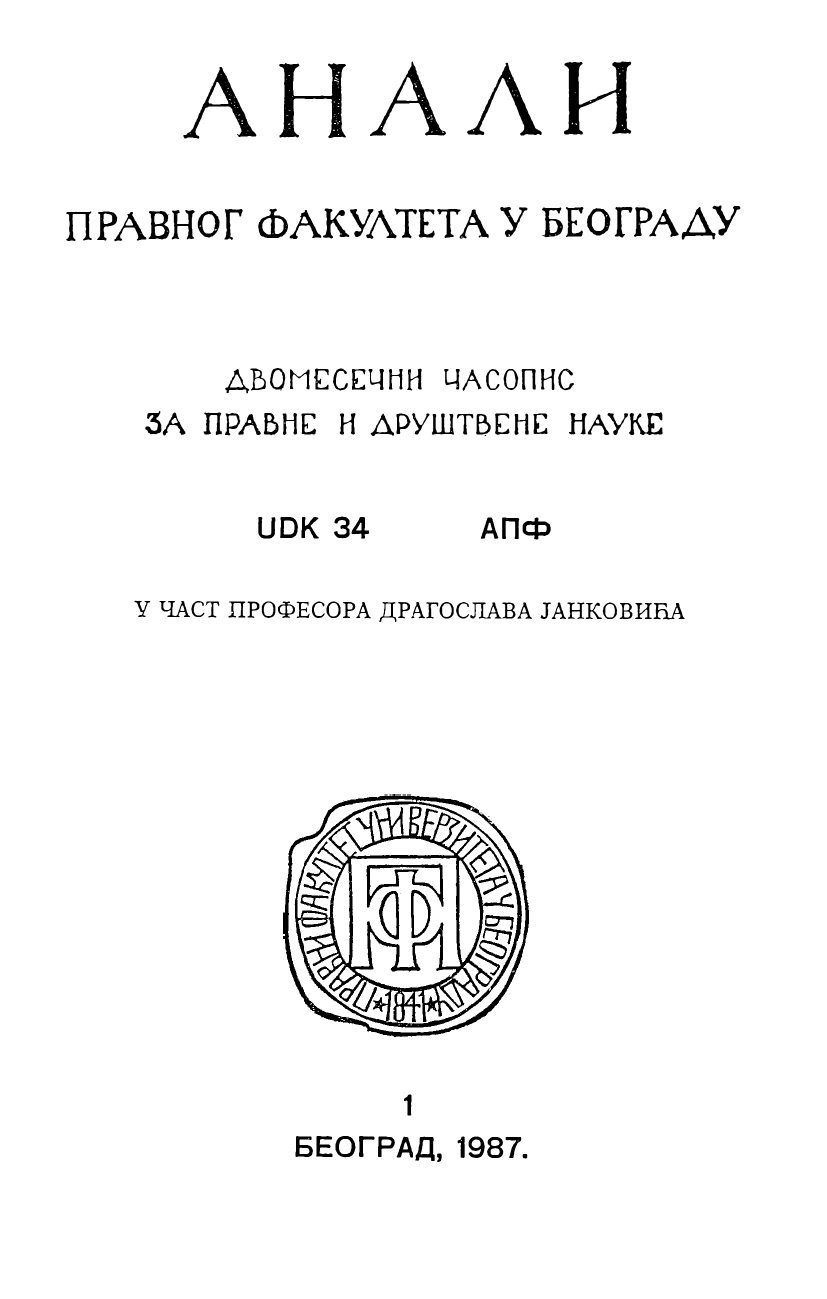QUIS ERAT GAIUS
QUIS ERAT GAIUS
Author(s): Obrad StanojevićSubject(s): Law, Constitution, Jurisprudence, History of Law
Published by: Правни факултет Универзитета у Београду
Summary/Abstract: The present concise study is an attempt to solve the question of the personality of Gaius on the ground of his work, and first of all of the Institutions, since it is a reasonable assumption that no one can write and not to make visible his personality too, at least partially. At first sight Gaius is a peculiar mixture of characteristics. That is why some authors consider him „an eccentric" (Sonderling) or outsider. By some characteristics he is a typical Roman, but at the same time he is rather helenized (Kaden and Kaser). He is simultaneously a very cautious and daring writer,, modest, but original and of an independent spirit, which is clear from the titles of his works whose majority is a novelty in legal literature, but also from his opinions expressed in the works. In constrast to the classics, he strives toward making a system and toward definitions. In such a way he has created the first legal system in history, which influenced many handbooks and codifications (personae — res — actiones). He is one of the rare jurists who is paying attention to the past (together with Pomponius), but, contrary to his colleagues, he had also critical attitude toward old institutions. His scholarly honesty can be seen by his quoting of other authors’ opinions, and quite frequently at the same time (parallelly) his own and those of the concurrent (Proculean) school, while admitting sometimes the arguments of the followers of that school. If one san discern a personality out of a style, Gaius is a simple, unpretentious, clear, but deep an author. There are, although small, some connections between his name and his character. Although a name is most frequently a result of chance, it still, as a sort of propaganda, leaves impression on the person too. While opting for the hypothesis of Goropoius and Mommsen that name Gaius originates from gaudere (be happy about something) and that it has some relation with French gai and Italian gaio, the author notes that Gaius praized the measures for attenuating earlier cruelty with slaves and he emphasizes his gallant attitude toward women and tutela mulierum. As a favorite professor and colleague he has acquired that epithet noster, which has stayed as permanent characteristic of Gaius until the times of Justinian.
Journal: Анали Правног факултета у Београду
- Issue Year: 35/1987
- Issue No: 1
- Page Range: 82-93
- Page Count: 12
- Language: Serbian

